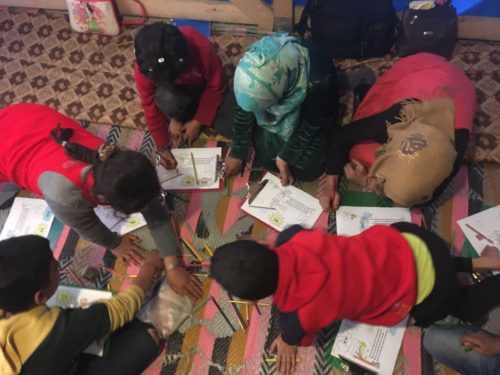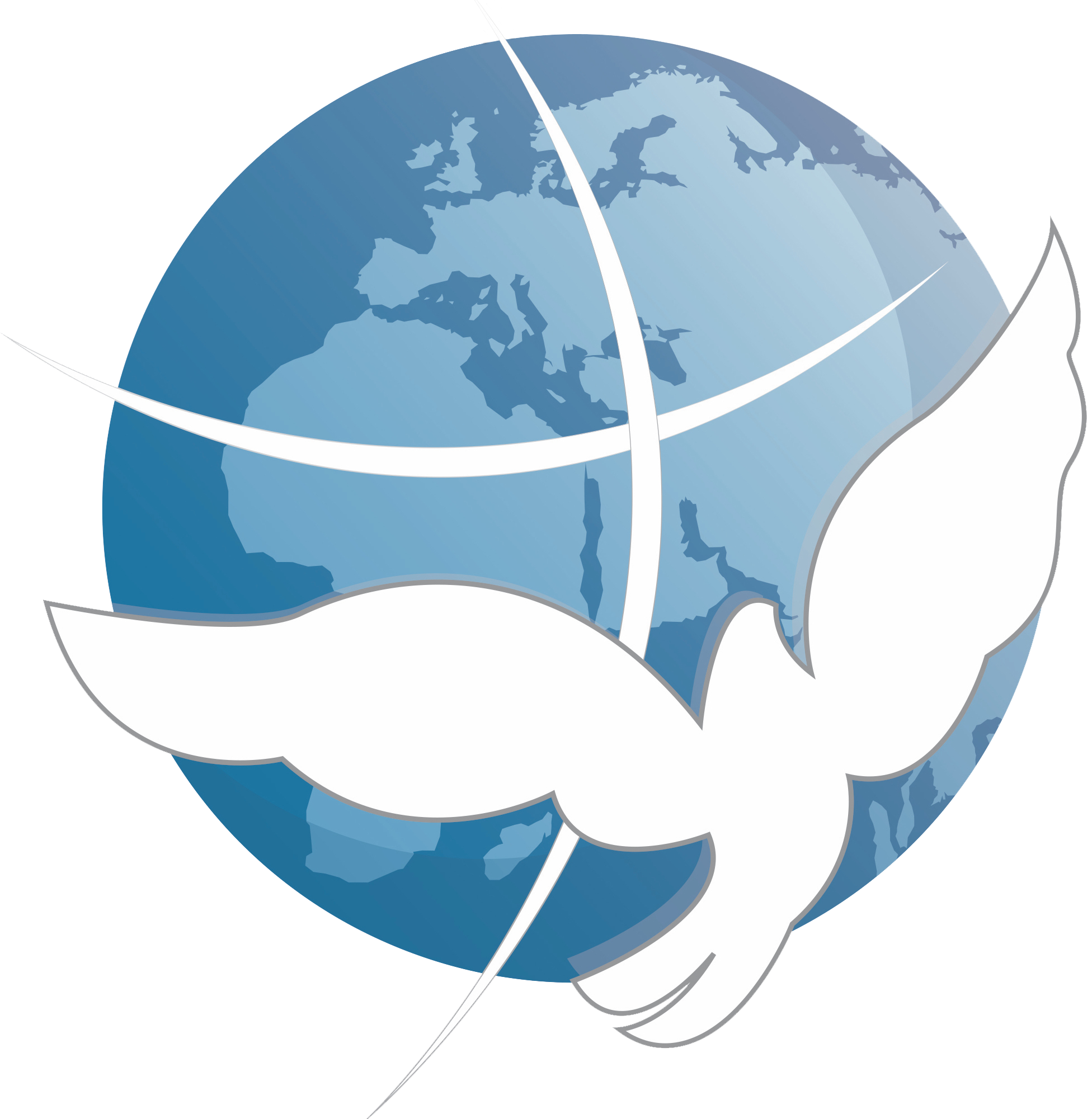Articles
“School is like their second home”
This article was originally published by Children on the Edge. You can read the article from their page or check out their website by clicking here.
 The Syrian refugee children we work with in Lebanon have fled war and conflict, seen their homes destroyed and their families attacked. To start to re-build their sense of wellbeing, it is vital that they start to regain a feeling of normalcy, and begin to recover from trauma in a safe space, with trusted adults.
The schools we support in the informal refugee settlements of Bekaa Valley provide this environment. A chance to receive a quality education in a child friendly space, with Syrian refugee teachers trained from within the camps. These are safe spaces where they can just be children again, but for the team here, maintaining this space is not without its challenges.
Refugee settlements along the border offer little stability or security and are regularly subject to military raids. Despite their circumstances, the refugee teachers here are dedicated and resilient. They work solidly as a team to create environments for the children that are both colourful and calm, fun and encouraging.
All of this is developed and maintained in the face of many threats. In November, one of the schools, along with two teacher families, were given a week by the military, to move from their present camp location. This happened as a part of a move order for several camp aggregations in the area by the government. After a struggle to find an alternative site, our partners decided to re-build it in the garden space of another school.
Project leader Nuna Matar said of the move ‘The teachers of all the schools nearby have worked together really well and helped each other out. They have been flexible and accommodating for each other and shared fuel and supplies when needed. It has displayed great teamwork and camaraderie between them’. The evacuation and re-building of an entire camp the year before has given the community experience in finding creative solutions, and many people from the camp, and students from other schools helped with the re-build. To help children from the original camp reach the school, a bus and driver were organised.
Recently one teacher was also taken by the secret services during a 5am raid. Armed and masked men kicked open doors and broke into tents, beating the teacher before taking him for interrogation. These raids are becoming a normal practice and a regular routine in camp life, which is distressing for the children.
Later on the teacher was released, and is carrying on regardless of the event. Despite these occurrences, the team’s commitment and skill is seeing children become happier, increasingly confident and more at peace. One teacher called Sawson says “School is like their second home, when I give the students time to draw, they draw houses and gardens, it has changed from when they use to draw war, and I see by what they draw now that school makes them feel safer. They like to be here”.
This progress is achieved through training Syrian refugee teachers, who deliver a child-friendly curriculum in the children’s own dialect, using Montessori techniques. Teachers are taught to help children re-engage, build relationships and find peaceful solutions to problems. Another teacher, Hiba describes some ways they build friendship; ‘Sometimes in the lessons we give them, we work on some things together to decorate the classroom, every Friday we have a shared meal, they all bring things from their houses and we eat a meal together.’
All these things work together to allow children to be children again, and to support each other. One teacher, Alaa says ‘The goals we are seeking is to let children forget about war and all the bad things, even for us now when we get involved, we focus on this, and are here to help the children and not think about the difficult situation. Sometimes we try to do something special, if someone has a birthday we plan a surprise together, this way it gives them the working together spirit, they like to help each other’.
Encouragement is a vital part of developing children’s wellbeing. One of the teaching team called Mona says ‘These children have experienced so much so when they come to the school it is nice to be treated and told in a good way to play together. We give them time to draw things, we try to find their talents and encourage them all the time. We are able to see the change in their faces when they start to smile’.
The team recently had an end of year celebration at the Beirut community centre. They will be having a graduation ceremony for the children in the camps next month, and comment that ‘We are so proud of the achievement of the children’. In April, they also opened a small library in one of the schools where children can borrow English and Arabic books. Nuna describes how ‘We had an inauguration party to celebrate this. There was a lot of singing, dancing, and smiling involved’.
Our partners are currently providing education for 550 children, and have more than 100 children on the waiting list. It costs just under £1000 to support a refugee teacher for a term at one of the tent schools, and provide them with full teacher training. The buses provided to get children to the newly moved school, cost £96 each to run each week.
Originally published on 28/6/2017
The Syrian refugee children we work with in Lebanon have fled war and conflict, seen their homes destroyed and their families attacked. To start to re-build their sense of wellbeing, it is vital that they start to regain a feeling of normalcy, and begin to recover from trauma in a safe space, with trusted adults.
The schools we support in the informal refugee settlements of Bekaa Valley provide this environment. A chance to receive a quality education in a child friendly space, with Syrian refugee teachers trained from within the camps. These are safe spaces where they can just be children again, but for the team here, maintaining this space is not without its challenges.
Refugee settlements along the border offer little stability or security and are regularly subject to military raids. Despite their circumstances, the refugee teachers here are dedicated and resilient. They work solidly as a team to create environments for the children that are both colourful and calm, fun and encouraging.
All of this is developed and maintained in the face of many threats. In November, one of the schools, along with two teacher families, were given a week by the military, to move from their present camp location. This happened as a part of a move order for several camp aggregations in the area by the government. After a struggle to find an alternative site, our partners decided to re-build it in the garden space of another school.
Project leader Nuna Matar said of the move ‘The teachers of all the schools nearby have worked together really well and helped each other out. They have been flexible and accommodating for each other and shared fuel and supplies when needed. It has displayed great teamwork and camaraderie between them’. The evacuation and re-building of an entire camp the year before has given the community experience in finding creative solutions, and many people from the camp, and students from other schools helped with the re-build. To help children from the original camp reach the school, a bus and driver were organised.
Recently one teacher was also taken by the secret services during a 5am raid. Armed and masked men kicked open doors and broke into tents, beating the teacher before taking him for interrogation. These raids are becoming a normal practice and a regular routine in camp life, which is distressing for the children.
Later on the teacher was released, and is carrying on regardless of the event. Despite these occurrences, the team’s commitment and skill is seeing children become happier, increasingly confident and more at peace. One teacher called Sawson says “School is like their second home, when I give the students time to draw, they draw houses and gardens, it has changed from when they use to draw war, and I see by what they draw now that school makes them feel safer. They like to be here”.
This progress is achieved through training Syrian refugee teachers, who deliver a child-friendly curriculum in the children’s own dialect, using Montessori techniques. Teachers are taught to help children re-engage, build relationships and find peaceful solutions to problems. Another teacher, Hiba describes some ways they build friendship; ‘Sometimes in the lessons we give them, we work on some things together to decorate the classroom, every Friday we have a shared meal, they all bring things from their houses and we eat a meal together.’
All these things work together to allow children to be children again, and to support each other. One teacher, Alaa says ‘The goals we are seeking is to let children forget about war and all the bad things, even for us now when we get involved, we focus on this, and are here to help the children and not think about the difficult situation. Sometimes we try to do something special, if someone has a birthday we plan a surprise together, this way it gives them the working together spirit, they like to help each other’.
Encouragement is a vital part of developing children’s wellbeing. One of the teaching team called Mona says ‘These children have experienced so much so when they come to the school it is nice to be treated and told in a good way to play together. We give them time to draw things, we try to find their talents and encourage them all the time. We are able to see the change in their faces when they start to smile’.
The team recently had an end of year celebration at the Beirut community centre. They will be having a graduation ceremony for the children in the camps next month, and comment that ‘We are so proud of the achievement of the children’. In April, they also opened a small library in one of the schools where children can borrow English and Arabic books. Nuna describes how ‘We had an inauguration party to celebrate this. There was a lot of singing, dancing, and smiling involved’.
Our partners are currently providing education for 550 children, and have more than 100 children on the waiting list. It costs just under £1000 to support a refugee teacher for a term at one of the tent schools, and provide them with full teacher training. The buses provided to get children to the newly moved school, cost £96 each to run each week.
Originally published on 28/6/2017




